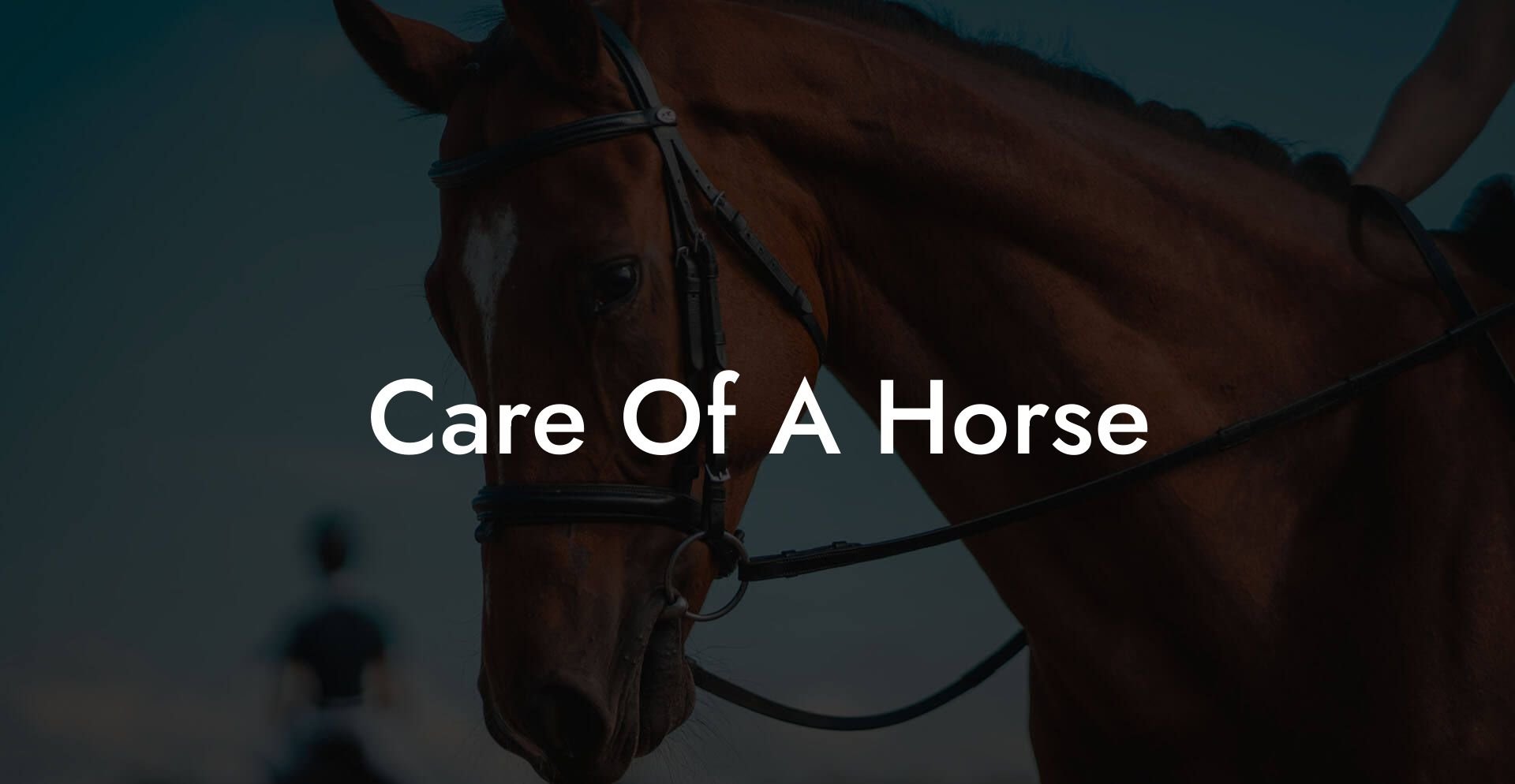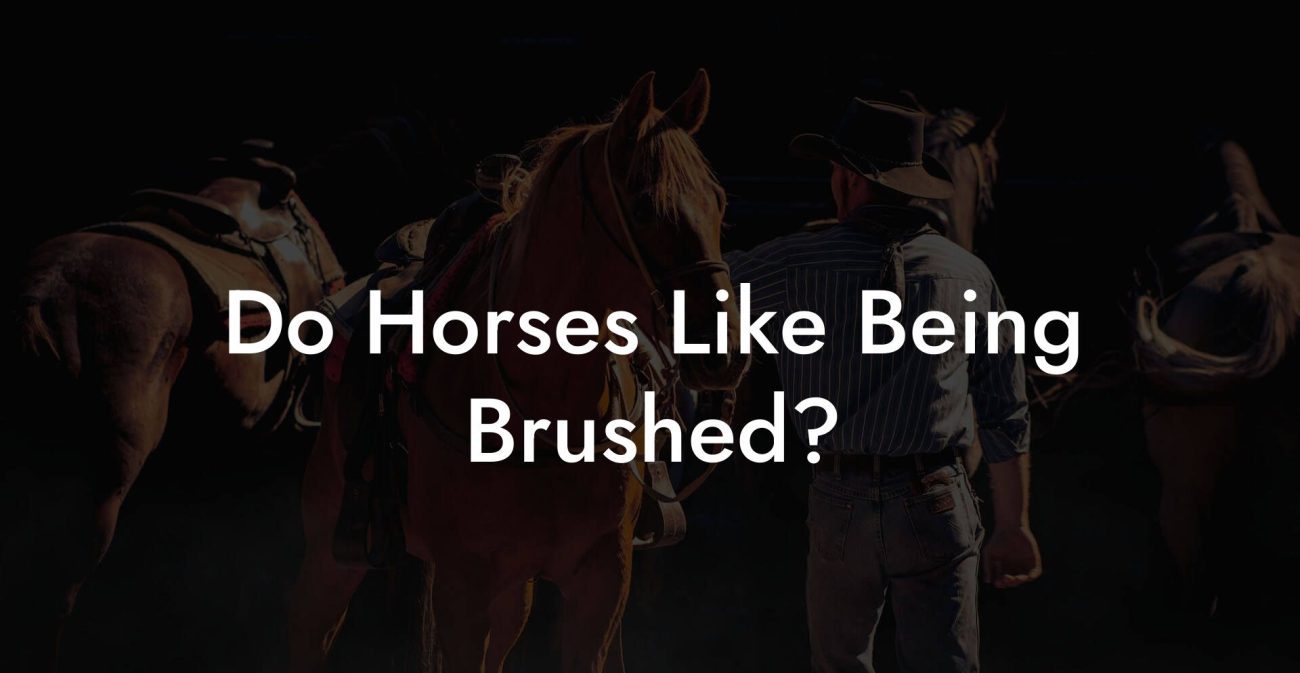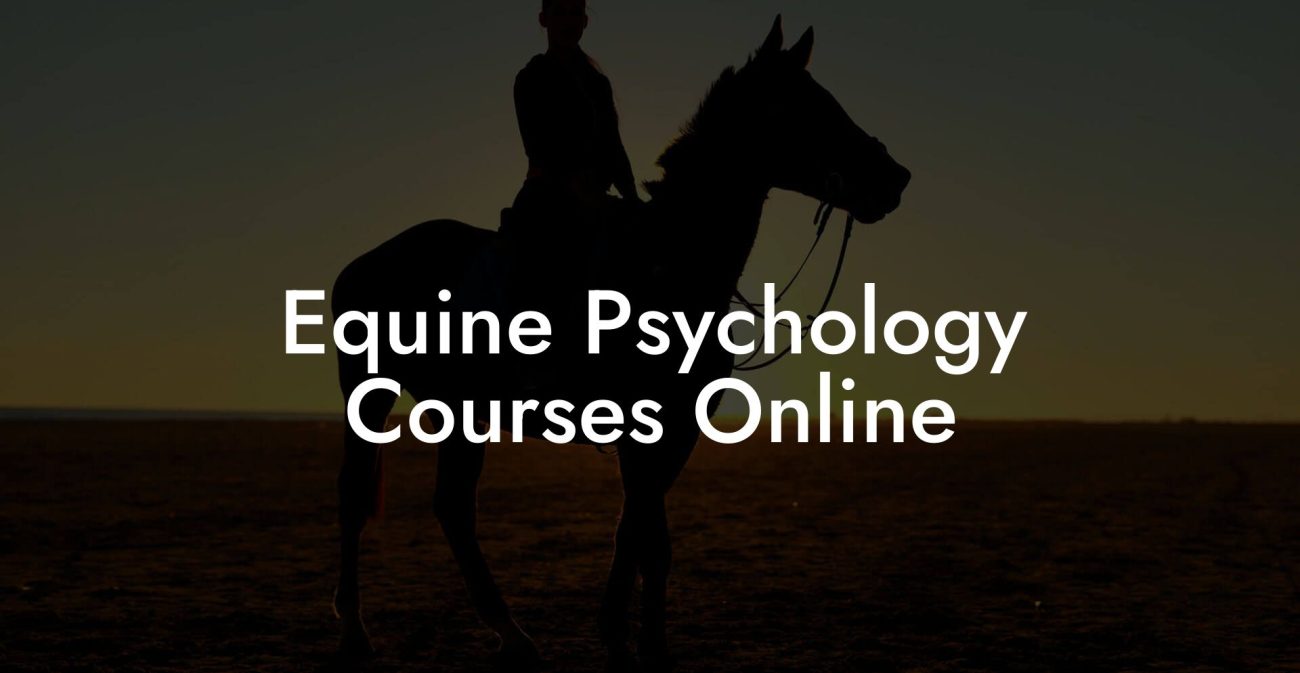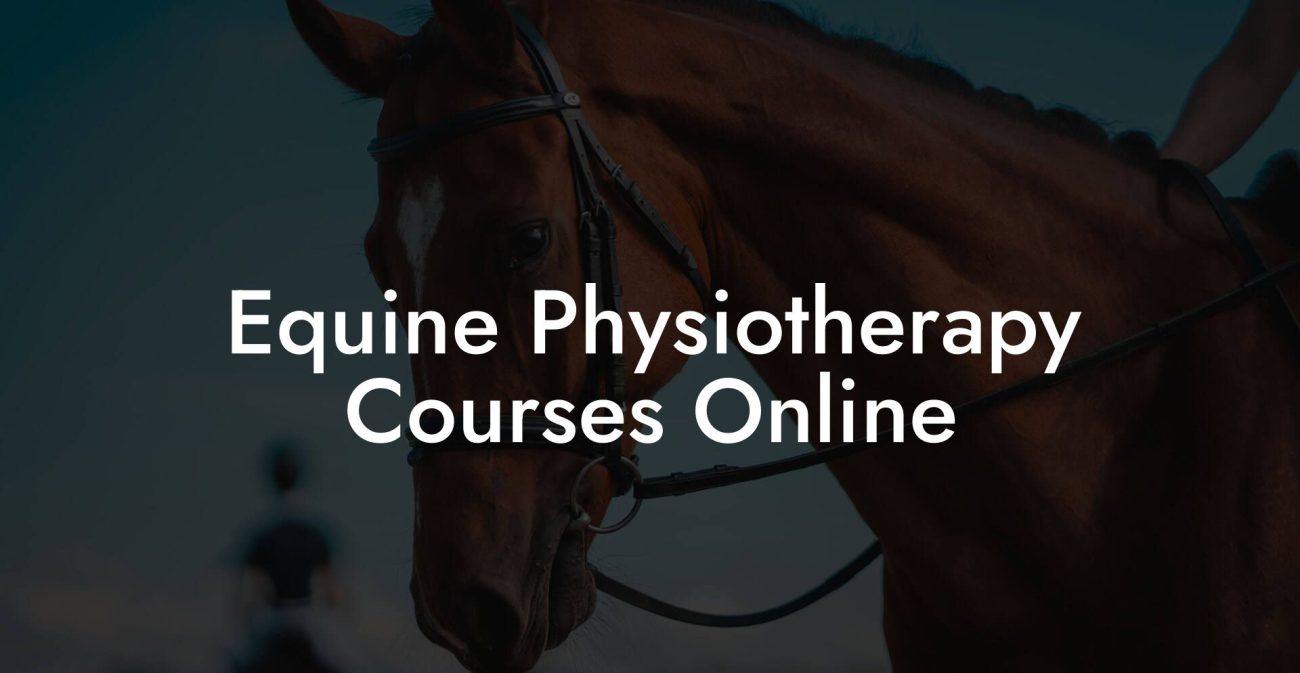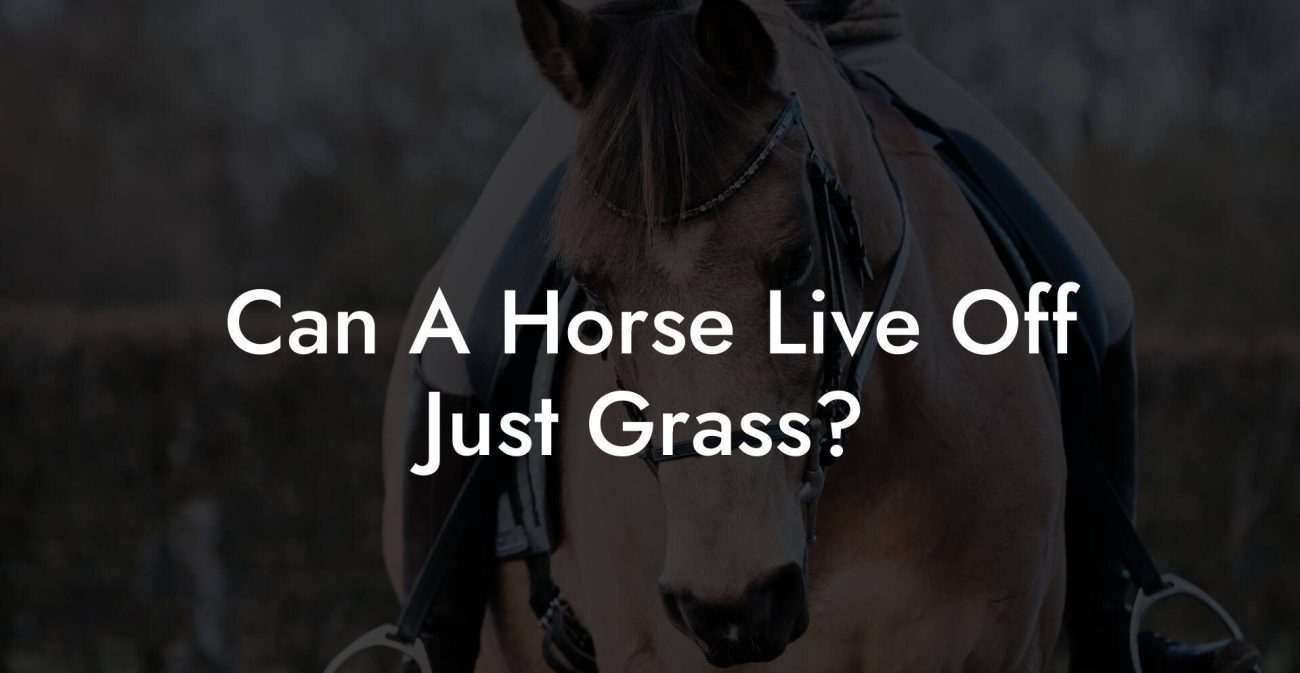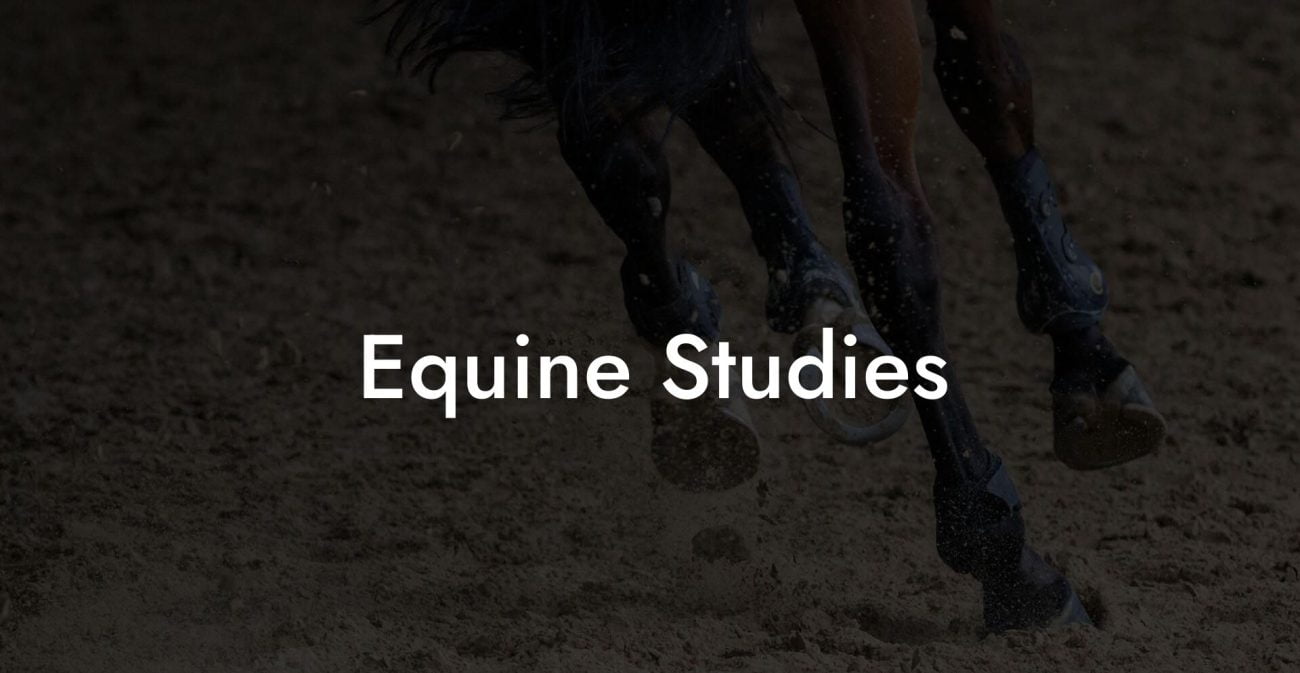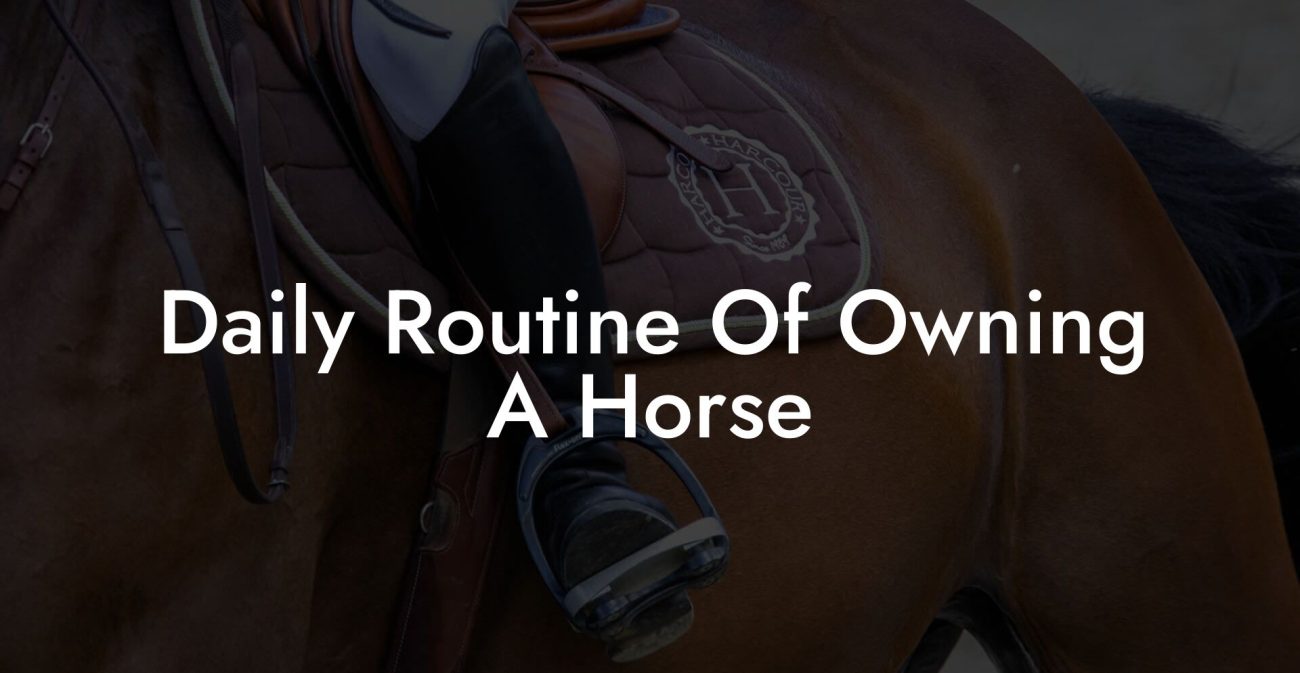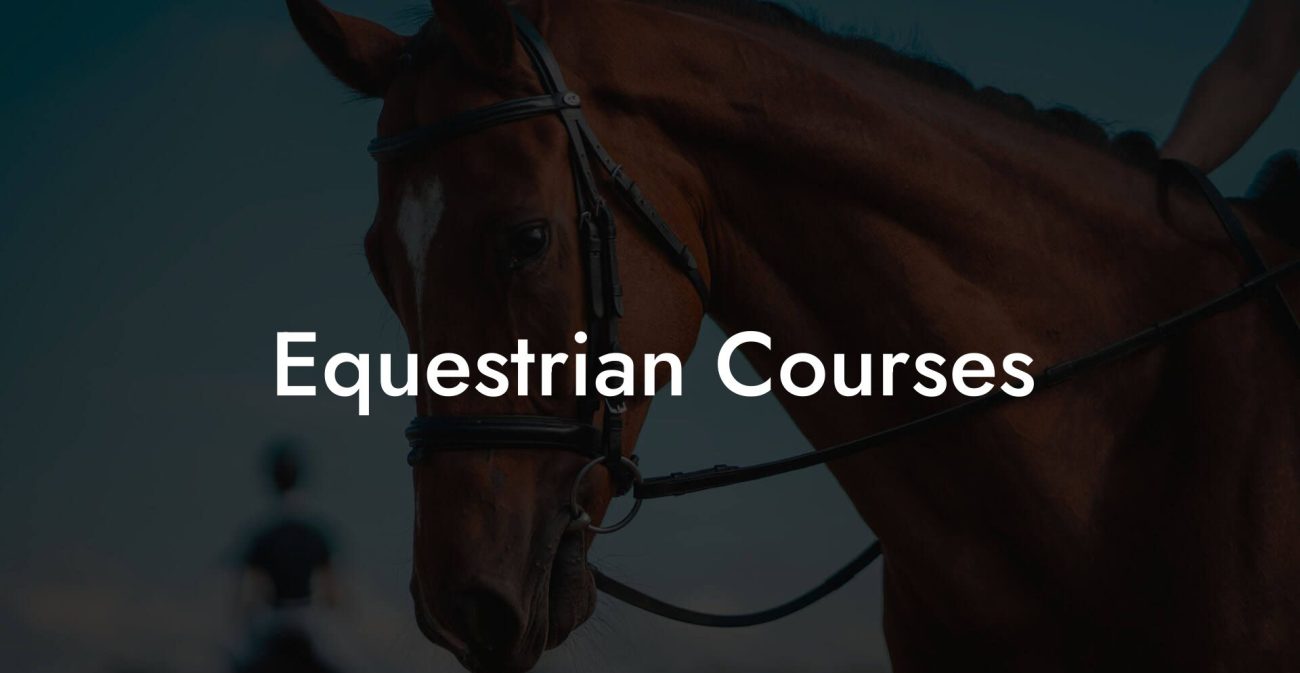There’s something magical about caring for a horse, a majestic, quirky companion that’s equal parts powerhouse and gentle giant. Picture this: a sunlit paddock, the soft rustle of hay, and the unmistakable whinny of a horse who knows you’re the real MVP in its daily adventures. Whether you’re a first-time horse owner or a seasoned equestrian with a heart as big as your stable, this guide is your ultimate playbook for horse care. Get ready for a wild ride full of practical tips, hilarious anecdotes, and insider secrets to keeping your four-legged friend happy, healthy, and oh-so-stylish.
Quick Links to Useful Sections
- Understanding Your Noble Companion: Beyond the Mane and Trot
- Essential Grooming and Hygiene Tips for a Happy Horse
- Feeding and nutrition: Fueling Your Equine Superstar
- Exercise and Mental Enrichment: Keeping the Horse Galloping
- Health and Veterinary Care: Staying Ahead of the Curve
- The Art of Housing: Stables, Pastures, and Everything In-Between
- Safety and equipment: Making Sure Your Horse is Rocking It
- Training and Behavior: Love, Discipline, and a Dash of Sass
- Resources and Community Support: Your Next Steps
- Your Journey to Exceptional Horse Care: Crafting a Personalized Plan
- Frequently Asked Questions About Caring for a Horse
- Your Journey to Equine Excellence Begins Now
Understanding Your Noble Companion: Beyond the Mane and Trot
Let’s start by exploring the fascinating world of horses. These creatures are not merely animals, they’re living, breathing masterpieces with personalities that range from spirited mavericks to chilled-out cuddle enthusiasts. With roots tracing back through thousands of years, horses have been our partners in work, sport, and even therapy, proving that they’re more than just a pretty face (or magnificent mane).
At the core of effective horse care is understanding your horse’s natural instincts, behaviors, and body language. A horse communicates in its own silent, yet expressive language, through subtle shifts in posture, ear movements, and even the slightest twitch of its tail. Learning this equine language is key to building a trusting, respectful relationship that goes way beyond basic feeding and grooming.
Whether your interest lies in competitive riding, trail adventures, or simply hanging out with your hoofed buddy, paying close attention to how your horse behaves will give you insights into its health, mood, and overall well-being. Remember, every horse is unique, what works for one might not be ideal for another, so stay curious and keep learning.
Essential Grooming and Hygiene Tips for a Happy Horse
Grooming is more than an aesthetic routine, it’s a ritual that deepens the bond between you and your equine friend. Regular grooming not only keeps your horse looking sharp but also serves as an early warning system for potential health issues. Think of it as a spa day that also comes with a side of detective work!
Start with a quality curry comb to help loosen dirt and stimulate circulation. Then, work through a sturdy dandy brush to remove debris and smooth out the mane and tail. For those pesky areas where dirt loves to hide, the legs and underbelly, a soft detail brush is your best mate. And don’t forget a gentle cloth and a hose to rinse off any stubborn flakes after a hard day’s work.
Pay close attention to your horse’s hooves, as they’re the unsung heroes in your horse’s daily adventures. Cleaning the hooves after every ride helps prevent infections and debris build-up that can lead to discomfort or lameness. Regular hoof care, including trimming and, if needed, shoeing, should be a non-negotiable part of your weekly routine.
Grooming sessions also present the perfect opportunity to check for skin irritations, cuts, or any signs of parasites. A little extra time spent in the grooming arena can save you a world of pain, and medical bills, down the line.
Feeding and nutrition: Fueling Your Equine Superstar
Ever wonder what keeps your powerhouse horse going day in and day out? The secret is in its diet! Just like us, horses thrive on balanced, nutrient-dense meals that cater to their rigorous lifestyles. But don’t worry, you don’t have to be a gourmet chef to create a menu that makes your horse’s taste buds sing.
For starters, high-quality forage should make up the bulk of your horse’s diet. Whether it’s lush pasture grass or carefully baled hay, this natural food is the cornerstone of equine nutrition. Think of it as the salad and veggies in your daily meal, essential for keeping your horse’s digestive system in tip-top shape.
Then, there’s the matter of grains and concentrates. While these can add some extra energy to your horse’s diet, balance is key. Overfeeding concentrates can lead to issues like colic and laminitis, so aim for moderation. Many modern feed brands are crafted to meet both the energy and nutritional demands of athletic horses, so take the time to read labels and consult with an equine nutritionist if needed.
Don’t forget about the ever-important hydration factor. Clean, fresh water should be available at all times because a well-hydrated horse is a happy, and healthy, horse. In addition, consider seasonal adjustments: cooler weather might call for more fiber-rich hay, while warmer months might require more frequent water changes to ensure your horse stays refreshed.
Lastly, incorporate supplements if necessary. From joint support to coat health, there are plenty of options on the market that can help optimize your horse’s diet. Just be sure to introduce any new supplements gradually and under the guidance of a vet.
Exercise and Mental Enrichment: Keeping the Horse Galloping
A horse’s daily routine should be a delicate balance of physical exercise and mental stimulation. Think of your horse’s life as a blend of gym sessions and mindfulness retreats, it needs both to thrive. Regular exercise not only keeps the muscles strong but also promotes a sharper, more engaged mind.
Depending on your horse’s age, breed, and energy levels, exercise routines can vary widely. For performance horses, structured training regimens that include warm-ups, cantering drills, and cool-down stretches are crucial. For the more laid-back equines, regular turnout in a safe pasture where they can graze and gallop freely goes a long way.
Mental enrichment is equally important. Incorporate obstacles, varied terrains, and interactive toys into their environment to keep boredom at bay. Horses are naturally curious creatures; a change in scenery or the introduction of a new object can spark their interest and encourage exploratory behavior.
Consider incorporating games that challenge your horse psychologically. Simple puzzles, variation in daily routines, or even training sessions that reward curiosity with treats can transform a routine day into an engaging adventure.
And let’s not forget the power of human interaction. Horses that are mentally challenged by their human partners are often more content and better behaved. So be creative, try new activities, mix up your riding routes, or even introduce some light, fun competition during exercise sessions.
Health and Veterinary Care: Staying Ahead of the Curve
Just like us, horses need their regular check-ups. Prioritizing veterinary care is a non-negotiable aspect of responsible horse care. Routine examinations help catch problems before they become serious issues, ensuring your horse remains a spirited, galloping wonder.
Schedule regular visits to your equine vet for comprehensive check-ups, vaccinations, and dental care. Dental health is often overlooked but is critical for proper digestion and overall comfort. A few quick inspections each year can prevent discomfort, weight loss, and other complications.
It’s also wise to develop a relationship with an equine chiropractor or massage therapist. These professionals can spot subtle issues in movement or posture that might signal underlying discomfort or stress. Whether your horse is a show jumper or a relaxed pasture pal, maintaining peak musculoskeletal health is key.
Equine health isn’t limited to physical matters. Pay attention to behavioral signs that could indicate pain, stress, or anxiety. Horses are masters of disguise when it comes to discomfort, they might lower their head, change their feeding habits, or even become more withdrawn. Knowing the baseline behavior of your horse lets you spot problems early.
And remember, preventive care is always better than reactive care. From regular deworming to managing seasonal allergies, a comprehensive health plan tailored to your horse’s specific needs is the best way to ensure long-term wellness.
The Art of Housing: Stables, Pastures, and Everything In-Between
Creating a safe, comfortable environment for your horse is an art form in itself. Whether you have a sprawling pasture, a modern barn, or a custom-built stable, the goal is the same: provide a space that fosters health, relaxation, and a little bit of luxury for your equine friend.
A clean, well-ventilated stable is a must. Horses are sensitive to dust, mold, and ammonia buildup from manure, so regular cleaning and maintenance are crucial. Ensure that the stable is adequately sized, not too cramped, but cozy enough to keep your horse feeling secure and sheltered.
Pasture management is another cornerstone of effective horse care. Rotational grazing systems can help prevent overgrazing and maintain lush, nutrient-rich grass. Fencing should be secure and high enough to prevent escapes but designed to minimize injuries if a horse bumps into it during play.
For the urban equestrian, creative solutions like portable run-in sheds or temporary shelters can transform any open space into a safe haven for your horse. And with technology making leaps in sustainable design, integrating eco-friendly practices into your stable’s maintenance plan is both a smart and responsible choice.
Lastly, never underestimate the power of aesthetics in equine housing. A well-designed stable with thoughtful touches, a splash of color on the walls, personalized nameplates for each stall, and plenty of natural light, can lift not only your horse’s spirits but also your own.
Safety and equipment: Making Sure Your Horse is Rocking It
When it comes to horse care, safety should always be at the forefront. From the gear you use on rides to the stable’s layout, ensuring that both horse and human are protected is essential. After all, accidents can happen in any story, even the best adventures have their share of unexpected twists.
Start with the basics: quality equipment. Invest in a well-fitted saddle and bridle tailored to your horse’s size and shape. A comfortable, balanced saddle isn’t just about aesthetics, it can prevent long-term back issues for your horse and ensure a smoother, more enjoyable ride for you.
Helmets and safety vests should be a staple in your riding kit, especially for newer riders or those venturing into more challenging terrains. Modern equestrian safety gear combines cutting-edge technology with fashionable designs that reflect your personality. Safety doesn’t have to be boring!
Don’t forget to inspect your equipment regularly. Over time, wear and tear can compromise the integrity of your gear. A quick check before every ride can save you from mishaps and keep your horse looking, and feeling, its best.
When setting up riding arenas or training spaces, ensure that the ground is even and free of hazards. Adequate lighting and clearly marked boundaries help prevent accidents during low-light conditions. If you’re working with younger horses or novice riders, consider additional safety measures, like padded walls or soft footing.
Training and Behavior: Love, Discipline, and a Dash of Sass
Training your horse might seem like an intimidating venture, but it can be as enjoyable as binge-watching your favorite series, only with more hay and a lot more neighing. The secret? Building a relationship based on mutual respect, clear communication, and, yes, plenty of positive reinforcement.
Every training session is an opportunity to learn something new about your horse’s personality. Some horses are natural-born leaders, quick to learn and eager to please, while others might require more patience and a strategic approach for breaking bad habits. Developing positive associations with training sessions, through treats, kind words, and gentle pats, can transform even the most stubborn stallion into a willing student.
Keep your sessions varied. Mix up routines to prevent boredom, incorporate ground work, obstacle courses, or fun games that challenge their minds. This diversity not only improves their physical agility but also sharpens their problem-solving skills.
A well-trained horse is more than just a captivating presence on the track, it’s a partner that communicates with you on a deeper level. Whether you’re working on advanced dressage moves or simply perfecting your canter during a leisurely ride, harnessing the power of clear, consistent training forms the backbone of a rewarding equine relationship.
And remember, training isn’t solely about discipline, it’s about celebrating the small victories. Every nudge toward improvement is a win, every breakthrough a shared triumph between you and your remarkable horse.
Resources and Community Support: Your Next Steps
Becoming a stellar horse caretaker doesn’t happen in a vacuum. Tapping into a vibrant community of fellow equestrians, veterinarians, trainers, and hobbyists can open up a treasure trove of advice, support, and inspiration. Whether it’s joining local equestrian clubs, online forums, or social media groups dedicated to equine care, remember that you’re never alone in your journey.
Look for workshops, webinars, and conferences that provide the latest insights into horse nutrition, behavior, and training techniques. There are countless blogs, YouTube channels, and podcasts that bring a fresh, contemporary perspective to traditional methods of horse care, perfect for the Gen-Z and millennial crowd.
Engage in community support initiatives. Many stables and riding organizations hold charity events, volunteer opportunities, and mentorship programs that enrich both your skills and your heart. Sharing your experiences and learning from others not only bolsters your confidence but creates a network of passionate horse lovers who are all working towards the same goal: exceptional care for our four-legged family.
Remember, every expert was once a beginner, and every seasoned rider started with that one moment of bonding with a horse. The wealth of resources available to you is just a click, or a neigh, away, so take advantage and let your journey in horse care be as social and supportive as it is informative.
Your Journey to Exceptional Horse Care: Crafting a Personalized Plan
There’s no one-size-fits-all manual when it comes to horse care. Each horse has its own personality, quirks, and needs that require a tailored approach. Begin by assessing your horse’s unique characteristics: What makes it tick? Is it a high-energy bundle of joy that needs ample exercise and mental challenges, or a relaxed companion that thrives on gentle care and close bonding?
Start small by keeping a care diary. Document your horse’s feeding times, mood swings, and any changes in behavior or physical condition. This ongoing log will quickly become your greatest asset when it comes to customizing a care plan that’s as unique as your horse’s signature canter.
Next, set clear, achievable goals, both short term and long term. Maybe you’re focusing on adjusting its diet to prevent weight fluctuations, fine-tuning a grooming routine that doubles as a health checkup, or improving its training regimen. Breaking these goals down into actionable steps not only makes the process manageable but also provides a sense of accomplishment as you tick off milestones along the way.
Integrate modern technology into your plan. There are now a plethora of apps designed to monitor equine health, schedule veterinary visits, and even track exercise patterns using wearable devices. These tools can provide real-time updates and insights, making it easier than ever to optimize care based on data-driven decisions.
And never underestimate the power of professional guidance. Whether you’re consulting with a veteran trainer, an equine nutritionist, or your trusted veterinarian, partnering with experts will add a refined layer to your personalized horse care plan. Their guidance, combined with your firsthand observations, creates a dynamic system that evolves as your horse’s needs change.
Ultimately, your journey in caring for a horse should be as rewarding as it is challenging, a vibrant blend of science, art, and a whole lot of heart. With patience, persistence, and an adventurous spirit, you’re well on your way to building a relationship with your horse that’s nothing short of legendary.
Frequently Asked Questions About Caring for a Horse
Whether you’re just starting out or have been riding the same horse since day one, questions always pop up along the way. Below are some of the most common inquiries, answered in a way that’s as clear as a sunny day in the pasture.
1. How often should I groom my horse?
Regular grooming, ideally daily brushing and hoof cleaning, is essential for both hygiene and bonding. Even quick, routine checks can help you spot early signs of skin irritations or injury.
2. What constitutes a balanced diet for a horse?
A balanced equine diet is primarily built around high-quality forage like fresh grass or hay, supplemented by grains or concentrates when needed. Always provide plenty of water, and consult with an equine nutritionist for personalized advice.
3. How do I know if my horse is happy?
Happy horses typically exhibit bright eyes, a relaxed posture, and a willingness to interact. Notice if your horse shows signs of stress such as pinned ears, excessive swishing of the tail, or a reluctance to eat, these can be indicators that something needs attention.
4. What exercises are best for keeping my horse’s mind and body active?
A mix of physical activities (like trail riding, cantering, or arena workouts) and mental enrichment (such as obstacle courses or interactive training sessions) is optimal. Tailor the routine to your horse’s age and energy level.
5. How frequently should I schedule veterinary check-ups?
Routine veterinary exams are essential, at least twice a year for healthy horses, with more frequent visits if your horse has existing health concerns or is in heavy work.
6. Can I feed my horse human food or treats?
While some fruits and vegetables can be safe and healthy in moderation, always avoid toxic foods like chocolate, caffeine, and certain nuts. When in doubt, consult your vet or a trusted equine nutrition expert.
7. How do I choose the right saddle and equipment?
The right equipment is all about fit. Ensure your saddle, bridle, and other gear are appropriately sized and comfortable for your horse. Regular inspections and professional fittings can prevent long-term issues.
8. What are some signs of stress or discomfort in a horse?
Signs include changes in behavior such as reluctance to move, lowered head carriage, dropping ears, or sudden shifts in appetite. Early intervention is key to addressing these issues.
9. How important is it to have a routine for my horse?
Horses love consistency. A well-established routine helps reduce stress and fosters a sense of security, making daily care, training, and feeding more effective.
10. Is there a community or online resource you’d recommend for new horse owners?
Absolutely! Social media groups, equestrian forums, blogs, and local riding clubs are treasure troves of practical advice and support. Connecting with others who share your passion can provide insights that textbooks simply can’t match.
Your Journey to Equine Excellence Begins Now
Caring for a horse is a journey full of ups, downs, laughs, and breakthroughs, and it all begins with a single step. With the right mix of hands-on care, expert advice, and genuine love for your animal, you’re equipped to transform your horse’s life and, in turn, your own. Every brush stroke, every tailored meal, every training session is a step toward creating a bond that transcends the ordinary. Your horse isn’t just a pet; it’s a partner in adventures, a confidant, and sometimes, even your best therapist.
Embrace the joy of the journey, celebrate the little victories, and remain ever curious about new techniques and trends in horse care. As you navigate the world of stables, pastures, and trail rides, your commitment will be rewarded with a thriving, spirited companion that’s as grateful for your care as you are inspired by its grace.
So, saddle up and get ready to embark on a journey that’s as rewarding as it is challenging. With passion, persistence, and a plan that’s uniquely yours, you’re destined to become the champion your horse always knew you could be. Cheers to many more rides, endless grooming sessions with a touch of laughter, and a life that’s filled with equine excellence!

